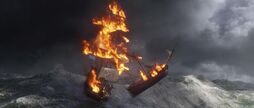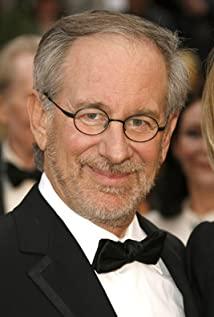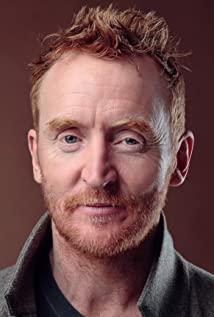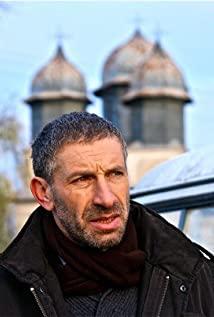/ Organized by Fan Daming /
Time: June 28, 2014 (Saturday) 10:56-11:25 AM
Venue: Ground Floor, Henglu Art Museum, No. 202, Nanshan Road, Hangzhou Lecture Hall
(The scene after the viewing of Spielberg's "The Adventures of Tintin" at
Henglu Art Cinema) Participants: (Preface) Fan Daming, Jin Aiwu, Chen Hong, Wang Peiqing, Su Mo, Wang Shujin, Zhang Xiaoping, Sun Fengfeng, Wang Fuxian, Huang Fangyue ( moviegoers: Ma Yue, Zhangzheng Hui, Hu sister, Ho Ji, Zhoulian Zhi, Huang Gang, Zhang Yu Su, Jiangxi Zhen, Ji Bo Qing, Zhou Hongze, Ruanshuang Xi, Gu Jie, Tian Ying, Jiang Tianming, Fuhui Hua, Chen Qu Hua, Zhu Song law, Ya congruent)
presided Person: Fan Daming
Record: Huang Fangyue It
would be a pity if
Huang Fangyue didn't watch it because "The Adventures of Tintin" is a cartoon His new film "The Adventures of Tintin," an animated film, was shot in the same year the director shot "War Horse" in 2011. The story is adapted from a series of comic strips by Belgian cartoonist Hergé. Because comic books have been translated and published in China since the new era, they are very popular, and the stories are well-known in China; and because the original work is a comic, the adaptation into an animation is naturally the meaning of the title, and it can be closer to the style of the original. Since most of Si Shi's feature films are very long, this film is 107 minutes, which is not too long. In short, for one reason or another, this animated film is scheduled to be shown today. Three days ago, I received a phone call from a movie friend asking whether "The Adventures of Tintin" is a live-action movie or an animation. Of course my answer is animation. As a result, many movie friends, including the one who called, thought it was for children because it was an animation, so they didn't come to watch it today. I think if you saw this film in the cinema three years ago, it's nothing if you don't watch it; if you haven't seen it and don't watch it because it's an animation, it's a pity.
"The Adventures of Tintin": a good-looking and instructive film, not just a children's film to interpret
Jin Aiwu: "The Adventures of Tintin" seems to be a children's film, but from the perspective of content, from the visual scene, from the protagonist's brains Judging from the actual participation behavior, it should be a film that is both child-like and adult-like. The film spans a wide range, from the city to the countryside, from the ocean to the desert, and the dog Baixue has always been a friend to accompany Tintin. The details of the film are vivid and rich, the description is delicate and human, and it is a good-looking and instructive film.
Chen Hong: The film is exciting and adventurous. It matches the comic books I read when I was a child. The film made me realize the talent of director Spielberg. He really put a lot of effort into making an animation into an epic. style.
Wang Pianqing: Watching this film, I feel fresh and cordial. When I recalled my childhood, it was my favorite comic story. This film itself has a blockbuster awareness, and it is more interesting than watching other so-called "blockbusters".
Su Mo: Just now Jin Aiwu said that cartoons are not only for children, but also for adults. I agree. This film is like a blockbuster in Europe and America. Flying and fighting are the performances of Hollywood films. Like Hayao Miyazaki's cartoon "Spirited Away", it emphasizes anti-war ideas and humanistic care, and also conveys the meaning of social life in the animated characters. The film also makes young people and adults feel good-looking and has value for appreciation, and it is not just interpreted as children's films.
Wang Shujin: In the past, the cartoons we watched had very simple stories, just to help others or something. This film has a large scene, the props in the scene, the structure of the ship, etc., the description is very specific and delicate, beyond life, beyond imagination, it was rarely seen in cartoons before. The film is not a small film, nor is it a children's film, it has a big vision. The story connects various characters and clues through the character of the captain. The story goes deep, layer by layer, which is very exciting. Watching this video can develop people's thinking.
Sun Fengfeng: The film is very new. Such cartoons are very realistic, like ordinary movies, with a strong sense of reality.
Zhang Xiaoping: In the film, all the elements that the blockbuster has, it also has all the elements, whether it is the storyline or the theme.
The "performance" of puppet-like characters is precisely the aesthetic feature of cartoons
Wang Fuxian: The plot twists and turns, humorous. The characters are made like and realistic, but after all, they are not real performances. The expressions of people are made by the ideas of the director and designers. It feels like there is no heart and no spirit.
Fan Daming: You're right - because it's not a live-action show after all, because it's a cartoon - if it weren't for that, it would be the equivalent of a normal feature film, a movie with actors playing roles, which come from the stage Actor's theatrical performance. When we know that we are watching cartoons, what we expect is not the performance of real actors like watching ordinary feature films, but the "performance" of such a so-called "no heart, no spirit" puppet-like characters. , which is precisely the aesthetic feature or aesthetic feature of cartoons. Without this fundamental point, cartoons would not exist. However, the latest cartoons like "The Adventures of Tintin" are completely different from the cartoonish cartoons like Disney's "Mickey Mouse and Donald Duck" in the past. It uses the most advanced and modern digital technology, and its simulated characters and performances are prepared for the simulation of the appearance of the animation based on real action performances as the early stage technology.
"Motion capture technology" makes the "performance" of animated characters more accurate in simulating life.
Huang Fangyue: We also talked about this shooting method in class recently, which is "motion capture technology".
Fan Daming: Yes, through "motion capture technology", the "performance" of animated characters can be more in line with even the subtler gestures and behavioral characteristics of real people and characters in life, and there is a greater accuracy of life simulation. sex. Therefore, such cartoons are more "closer" to ordinary feature films. But it is only "close", not completely equivalent; if it is completely equivalent, it is "real" with ordinary feature films. Of course, based on the latter possibility, some film researchers have also raised the question of whether future films will be performed without live actors. If so, the last common point in the technical aesthetics of film and theater—both the use of actors—will disappear completely, and only then can film completely abandon the so-called "theatrical crutches."
Jin Aiwu: Watching a movie is like a world tour.
Although Tintin is a reporter, he is actually a true detective.
Fan Daming: According to the introduction of the film, the protagonist of Tintin is not a child, because he is a newspaper reporter. A normal reporter would not be a teenager. Of course, from the outside, he does appear to be relatively young, and he should be a young reporter. From the perspective of character, Ding Ding is smart, capable, good at thinking, and has the spirit of research; in the whole process of his adventure, he has the indomitable fearless spirit and courage of "struggle, explore, and never give up until the goal is achieved", and has unity. The virtue of helping others. Tintin is a heroic character originally created by cartoonist Hergé, and the film reproduces such a young hero. Judging from the adventurous story presented in the film, Tintin, as a reporter, is actually a true detective. He accompanied the dog Bai Xue and joined forces with Captain Haddock of the Unicorn. The only descendant finally revealed the secrets of the heritage treasures set up by the Franswaal knights for this family. Of course, there are actually detectives in the film. Among them is a fat Interpol detective, Barna Bedos, who was shot and killed at the door by Sakarin and his gang when he came to inform Tintin. The contribution was to leave a bloody handprint on a newspaper before he died, thereby providing information on the name of the ship "Calabjean". And the twin detectives named Du Pont and Du Pont mainly play the role of gag comics in the film. Of course, they are not irrelevant - their important contribution is to detect The pickpocket, who specializes in stealing other people's wallets, recovered Tintin's stolen wallet - which contained a third of the paper scroll he found in the mast of the model ship he had bought containing the secret words. Ding Ding's actions made inferences, and finally cracked all the secrets, and shattered the dream of the Red Pirate descendants Sakarin and his gang who wanted to grab this inheritance.
The Enlightenment of "The Adventures of Tintin" on the current situation of education in China
Wang Shujin: Through the character Tintin and his adventures, the film educates students to pay attention to and understand life, use their brains, and have divergent thinking; Things should have an in-depth and meticulous research attitude, as well as a sense of justice.
Jin Aiwu: Our education today has not stimulated the imagination of children. Our children can only deal with teachers and parents. They will not laugh when they should laugh, and they will not think when they should think. There are so many training classes in the society, but they have not had the desired effect. They will only follow the steps step by step, and they should not be exceptional when they should. Moreover, many children do not have love. If this status quo continues, our education will be a failure.
Organized on July 14-15, 2014
View more about The Adventures of Tintin reviews











